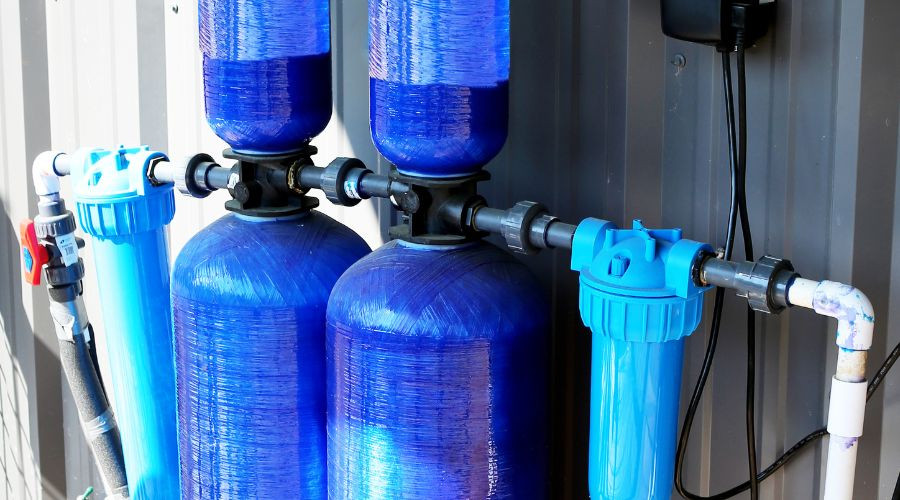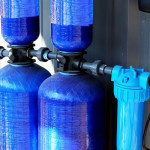The Importance of Installing a Whole House Water Filter
Many focus only on drinking water, overlooking the absorption of chemicals through the skin during bathing. Clean water shouldn't stop at the kitchen sink. Installing a whole-house water filtration system protects every water source, from showers to washing machines.
According to the Water Quality Association, whole-house systems can remove up to 99% of chlorine and significantly reduce heavy metals like lead and mercury that may be present in municipal water supplies. A home free of chemical worries can be achieved—experience the transformation now. Below are the benefits and steps to get started.
What Do Water Filtration Systems Do?
Every water filtration system serves one critical purpose: removing harmful contaminants from drinking water before they reach the glass. These specialized systems act as protective barriers between potentially contaminated water sources and the household, trapping everything from sediment and chlorine to more dangerous pollutants like lead and bacteria. They work through various filtration mechanisms that target specific impurities. The process is remarkably effective.
The filtration process typically involves multiple stages of purification technology. First, water passes through a sediment pre-filter that captures larger particles like rust, sand, and debris. Moving forward, the water encounters activated carbon filters that adsorb chemicals, improve taste, and eliminate odors through a process called chemical absorption. Is the distinct chlorine smell disappearing after installing a filtration system? That's the activated carbon doing its job!
More advanced water purification systems may incorporate additional technologies for comprehensive protection. Reverse osmosis forces water through a semipermeable membrane that blocks contaminants as small as 0.0001 microns—tiny enough to stop virtually all bacteria, viruses, and dissolved solids. According to the Water Quality Association, properly maintained filtration systems can remove up to 99% of common water contaminants. Unlike basic pitcher filters, whole-house systems provide continuous protection at every tap, ensuring clean water for drinking, cooking, and bathing simultaneously.
Benefits of Water Filtration Systems
 Installing a whole-house water filtration system provides complete protection from contaminants throughout the entire home. Unlike point-of-use filters that only purify water at specific taps, whole-house systems treat water at the main supply line, ensuring every faucet delivers clean, filtered water. The benefits extend far beyond just drinking water quality.
Installing a whole-house water filtration system provides complete protection from contaminants throughout the entire home. Unlike point-of-use filters that only purify water at specific taps, whole-house systems treat water at the main supply line, ensuring every faucet delivers clean, filtered water. The benefits extend far beyond just drinking water quality.
One of the primary advantages of home water purification systems is their ability to remove a wide spectrum of contaminants, including chlorine, sediment, heavy metals, and volatile organic compounds. This comprehensive filtration approach means protection whether showering, washing dishes, or filling a glass. Appliances will benefit too. Water-using appliances like washing machines and water heaters typically last 2-3 years longer when operating with filtered water, according to research from the Water Quality Association.
Furthermore, whole-house filtration eliminates the need for multiple individual filters throughout the home, creating a more cost-effective solution in the long run. The amount spent on replacement filters and bottled water can be significant. Many homeowners report savings within the first year after installation. Additionally, these systems require minimal maintenance, with filter replacements typically needed only once or twice annually. With improved water taste, reduced scale buildup, and protection for plumbing infrastructure, a whole-house water filter represents an investment in both home value and family well-being.
Signs a Home Needs a Water Filtration System
 Tap water may be signaling a need for a water filter installation. Recognizing this need often begins with noticing subtle changes in water quality. Unusual tastes, odors, or discoloration can signal contaminants that require attention. These indicators shouldn't be ignored.
Tap water may be signaling a need for a water filter installation. Recognizing this need often begins with noticing subtle changes in water quality. Unusual tastes, odors, or discoloration can signal contaminants that require attention. These indicators shouldn't be ignored.
Staining on fixtures and appliances provides compelling evidence of water needing filtration. Orange-brown stains in sinks or toilets may indicate the presence of iron. Blue-green stains suggest copper contamination, while white-scale buildup indicates hard water minerals. According to the Water Quality Association, approximately 85% of American homes have hard water issues that can damage plumbing over time.
Beyond visual cues, paying attention to how water affects everyday life is important. Dry or itchy skin after showering could indicate chlorine levels or hardness minerals affecting the water. Frequent plumbing repairs might also signal water quality problems, as corrosive water gradually damages pipes and fixtures. Water-using appliances that fail prematurely often point to unfiltered water as the culprit. With proper filtration, these appliances typically last 20-30% longer.
About Air Works Heating & Air
Air Works Heating & Air is a plumbing, heating, and air conditioning company that has been serving the Wake Forest area since 2007. They offer flat-rate pricing, 1-year parts & labor warranty, and a satisfaction guarantee. Call them for water filtration system services in Wake Forest, NC.







